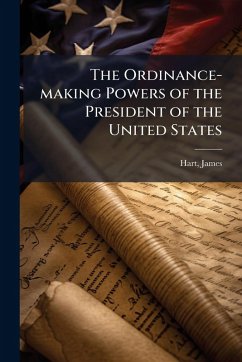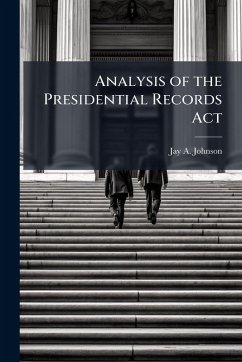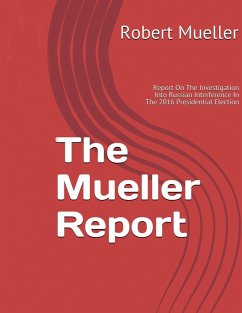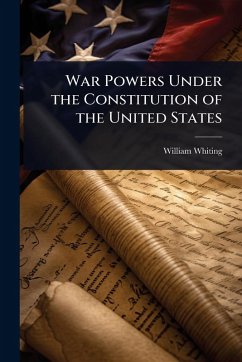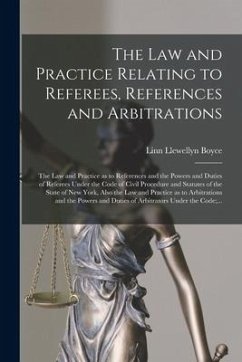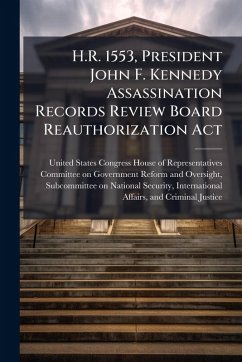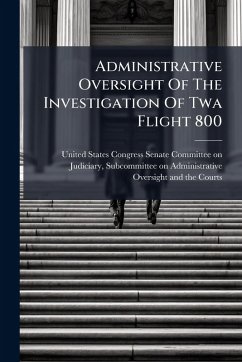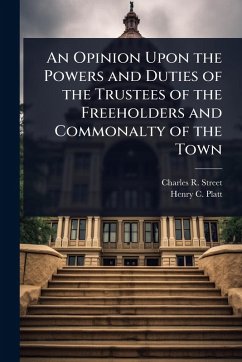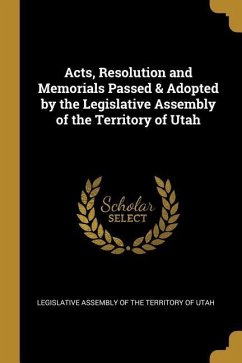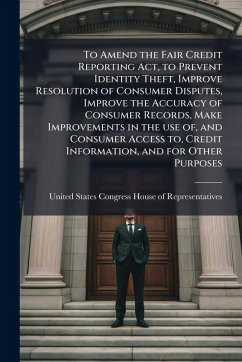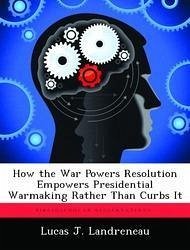
How the War Powers Resolution Empowers Presidential Warmaking Rather Than Curbs It
Versandkostenfrei!
Versandfertig in über 4 Wochen
14,99 €
inkl. MwSt.

PAYBACK Punkte
7 °P sammeln!
Congress passed the War Powers Resolution of 1973, as the Vietnam War was winding down, in an attempt to contain presidential war powers and "reassert traditional congressional prerogatives in foreign policy as envisioned by the Constitution."1 What impact has the War Powers Resolution had on the original intent of Congress? Contrary to its legislative intent, the poorly-written War Powers Resolution has found frequent use as an enabler for the President to commit troops rather than as a check on executive warmaking authority. This work has been selected by scholars as being culturally importa...
Congress passed the War Powers Resolution of 1973, as the Vietnam War was winding down, in an attempt to contain presidential war powers and "reassert traditional congressional prerogatives in foreign policy as envisioned by the Constitution."1 What impact has the War Powers Resolution had on the original intent of Congress? Contrary to its legislative intent, the poorly-written War Powers Resolution has found frequent use as an enabler for the President to commit troops rather than as a check on executive warmaking authority. This work has been selected by scholars as being culturally important, and is part of the knowledge base of civilization as we know it. This work was reproduced from the original artifact, and remains as true to the original work as possible. Therefore, you will see the original copyright references, library stamps (as most of these works have been housed in our most important libraries around the world), and other notations in the work. This work is in the public domain in the United States of America, and possibly other nations. Within the United States, you may freely copy and distribute this work, as no entity (individual or corporate) has a copyright on the body of the work. As a reproduction of a historical artifact, this work may contain missing or blurred pages, poor pictures, errant marks, etc. Scholars believe, and we concur, that this work is important enough to be preserved, reproduced, and made generally available to the public. We appreciate your support of the preservation process, and thank you for being an important part of keeping this knowledge alive and relevant.



